My Favorite Michelin-Starred Restaurant in the South Is...
No Seed Oils, Nothing over $40, A Real Conversation About Public Health
My favorite Michelin-rated restaurant in the South does not own a pair of tweezers in its prep counter. There are no plates over 35 dollars, nor does this place cook with anything but ghee and tallow. No foams. No “bites” of food. No hamachi crudo, and no supplemental caviar or truffle courses. It’s BYOB—no wine pairings of cruddy wine that the restaurant manager wants to get rid of. Just honest, wholesome grub.
No fine dining French techniques, but excellent sourcing, down-home cooking, and that Southern hospitality that honestly shits on the idea of “hospitality” I get here in Vegas, the hospitality hub of the West. There is no menu to look at via their website or Yelp; it changes weekly, which adds to its allure. It’s a half-grocery and half-butcher shop, primarily a daytime eating destination.
No lie. Chili’s was it between 1998-2004.
When you think of your favorite restaurant, it’s never that 18-course tasting menu that you appreciate, but have an implicit bias due to the meal's price point, satiety factor, and overall stuffiness. I like to draw a parallel to this in music. Take Kendrick Lamar’s Mr Morale and the Half-Steppers, a good album with brilliant lyricism, but a difficult listen. You can take this body of work and admire it akin to an esoteric painting at the MoMA—take a deep look at it, then pass.
It’s not an album I’ve listened to once since it was released, but I recognize the intricate level of musicianship and artistry put into it.
Do I want to hear that again? Hell to the nah.
The same goes for most tasting menus or Michelin-accredited spots. It’s a show, not sustenance.
That’s why Dai Due in Austin is my favorite new addition to the Michelin guide.
They make unadulatered takes on food they want to eat without bullshit additives.
Take their Cold Meat Board, which comes with chicken liver mousse and stone fruit pecan chutney, nilgai antelope salame cotto, wild boar summer sausage, liverwurst, duck rillettes, grilled rye bread, spicy roasted pepper mustard, pickled green beans, and pickled cabbage—an elite grazing board with all elements made in house.
Or take a look at a sample menu and tell me this is not everything I look for in a “neighborhood” restaurant:
This is a spot you can walk out of fully nourished, happy, and relaxed with your significant other, family of 3, or solo if you’re a vagrant traveler like me, spending just a Franklin.
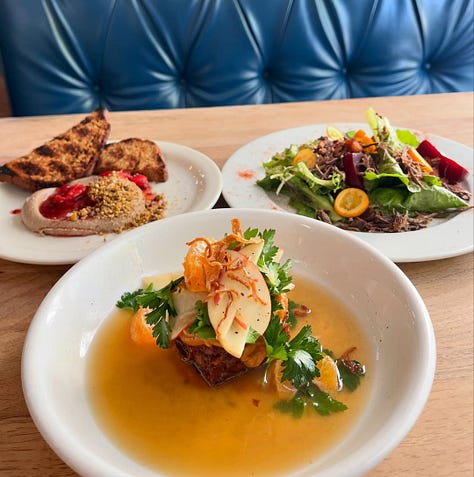
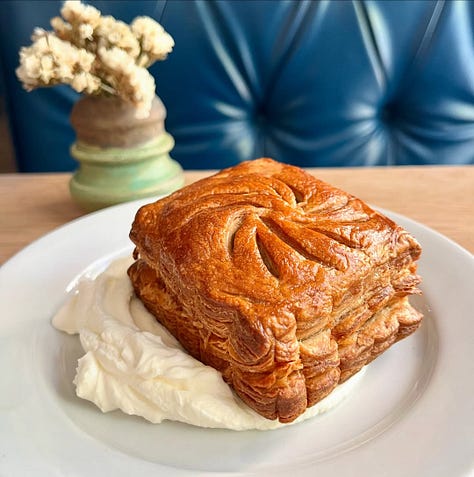
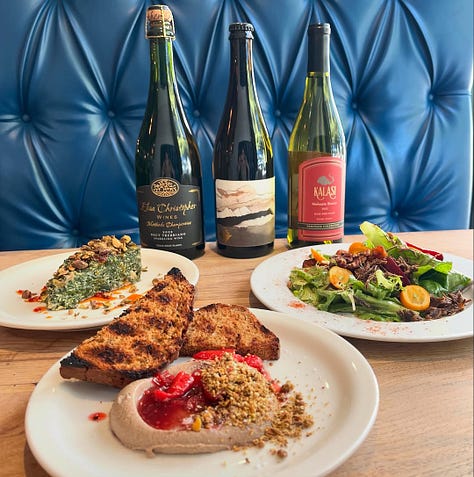
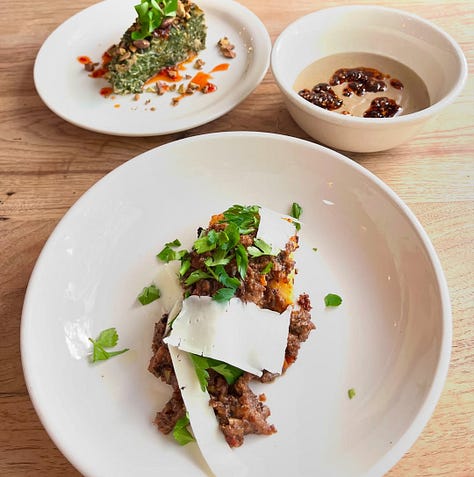
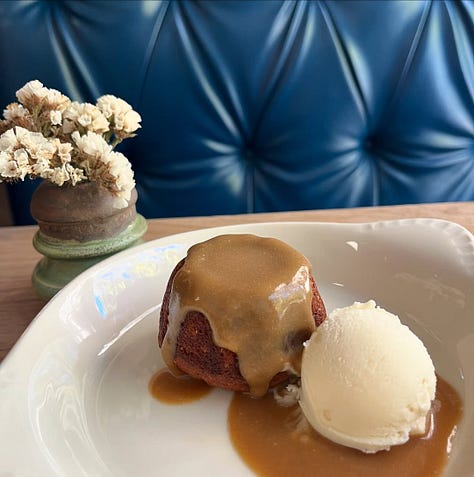
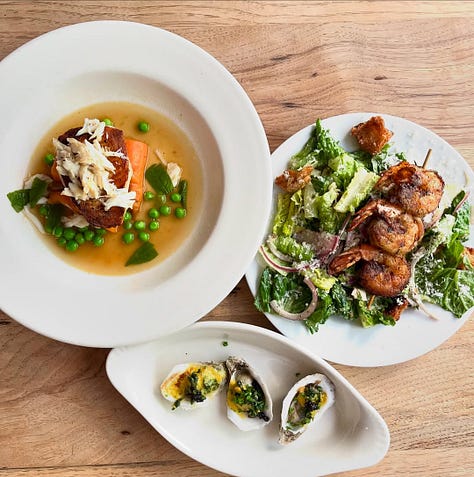
You could go here for breakfast, some rations for your Airbnb (hopefully with a kitchen), and dinner for under the price of like-minded 1-Michelin-Star restaurants in the adjacent South (Texas, Florida, and Georgia, really).
I haven’t lived in Austin in more than a decade, and things have changed for the worse—rent, weirdo tech nerds, yuppie scumbags, but one thing that has constantly evolved is the food scene. And in the realm that I enjoy… In SF you get a dime-a-dozen prix-fixe menus popping up with “X chef who staged at X restaruant in London, etc…” put up bullshit 250+ dollar menus that expense account nerds eat up. Austin is more punk and DIY, with a more grassroots ethos. It reminds me of the early 2000s-2010s Portland food scene. Good chefs, good ingredients, no pomp and circumstance, and a cult following that comes organically.
The terms hyper-regional and hyper-seasonal get thrown around more than immersive and elevated in the hospitality space, and few restaurants truly live up to the billing. Dai Due is through and through Texan at its core. From sourcing local game—much of the menu features wild boar and antelope, to even having beer and wine that are exclusively from the state.
Equally satisfying for a lingering brunch or blowout feast at dinner, the Texas-forever menu under chef Jesse Griffith has heavier dishes like dry-aged wagyu rib-eyes, quails stuffed with boudin noir, grilled chicken hearts, and coffee-cured antelope leg filets. Not to mention the best burger in the state and equally superior biscuits and gravy. An industrial farmhouse setting with a patio adorned with twinkle lights further adds the down-home Texas vibes.
Yet, besides having strong Texan roots, the restaurant's main ethos is not to cook with seed oils. One of the forefathers of this new marketing trend of being seed oil-free, Dai Due champions itself as a place where you cannot only eat well but also feel well.
The best display of combining holistic cooking is best witnessed in its Cemita Ahogada. Breakfast sandwiches will always be the rage for any brunch spread, and here, Dai Due takes pork carnitas, refried beans, asadero cheese, onion, mayo, radishes, and cortado and serves them in a housemade grilled cemita bun, drowned in spicy bone broth. It's as if the French dip was on TRT.
In addition to not cooking with seed oils, Dai Due practices regenerative farming and sells only sustainably hunted and raised meats in its butcher shop.
Activism and food culture are at an intersection like never before. Your diet is now your religion. Seed oils may not be the end-all be-all, but eliminating them from your diet is more in vogue now than ever.
As I was daydreaming of eating at Dai Due 1,2961 away, I was struck by an outlier on the 215 highway. Usually, you get a barrage of injury lawyer billboards crowding your line of sight as you squint in the deathly Vegas sun. However, this go-round, I was hit by an ad from a local Mexican restaurant called El Dorado Cantina. The billboard read “We Hate Seed Oils!” Their website downplayed imagery of their dishes for huge callouts lamenting the evils of seed oils and branding themselves as one of the only local cookeries that don't use them.
If you asked me a decade ago, “What’s a seed oil,” I would have only vaguely known. I was familiar, of course, with the family of oils to which the umbrella term refers — canola oil, corn oil, sunflower oil, and other versions of cooking oils derived from plant seeds and kernels. These were the “neutral” oils called for in so many recipes. They’re the workhorse oils that could be whipped into a mayonnaise or heated to fry a chicken without adding any pesky, distinct flavor. And while it is possible to get, for instance, sunflower oil mechanically cold-pressed from sunflower seeds, most seed oils in the grocery store are extracted with heat and chemical solvents.
But like the ’90s “nonfat” craze or the great carb scare of 2003, seed oils have become the dietary concern du jour. Sites like Seed Oil Scout and Local Fats allow users to search for restaurants that are seed oil free, while Louisiana considers a new seed oil labeling law. More restaurants are noting that they’re seed oil-free because more people are asking.
The concern over seed oils is rooted in their higher levels of omega-6 fatty acids, which can cause inflammation. Omega-6 fatty acids have become a larger part of the American diet over the course of the 20th century, specifically with massive increases in ingestion of soybean and canola oil since the 1980s. And there’s the issue that most commercially available seed oils are highly processed foods, produced with chemical solvents like hexane. The EU limits how much residual hexane can be in seed oils, while the FDA does not monitor hexane residue at all.
Restaurateurs say that aside from it feeling “natural,” the choice to use beef tallow is about taste, not health. Yet, eating large amounts of beef tallow every day is probably not great for your health either. Chefs hope that putting “no seed oils” on social media and on the menu communicates that they’re not using cheap, industrial ingredients, while also highlighting an ingredient choice that might differ from what people assume when they order a chicken Parm and a plate of fries.
But in our broader political moment, “no seed oils” has also become shorthand that signals a wider wellness ethos, though diners and restaurants may not agree on the same meanings. For some, seeing “seed oil-free” may signal what Dai Due’s Jesse Griffiths and other chefs intend, or a shared understanding of the risks of an omega-6 rich diet. Or perhaps they see a kindred spirit in a Make America Healthy Again agenda, and assume an adherence to a host of other ideas about “health.”
Though sources like the American Heart Association and Harvard Medical School say omega-6s pose no real risks, for some restaurateurs, omitting seed oils connects deeply to their own health journeys. Many who have been struggling with conditions like PCOS have seen cutting out seed oils lead to a considerable reduction in inflammation and brain fog, albeit not overnight.
Outside of Dai Due, spots like James Purvisions in Hurst, Texas, have followed suit by using avocado oil, olive oil, and butter. Though the whole menu isn’t seed oil-free, as some ingredients from vendors still use them, they make it clear they cater to a seed oil-free diet. This, in part, makes it easier for vendors to supply their restaurants.
Cooking without seed oils can be an ordeal. For instance, James Provisions was known for its fries, but since they removed the fryer from the kitchen, they now serve roasted potatoes with compound miso butter alongside their burgers, much to the dismay of their loyal customer base.
Chef Chris Dumesnil of Aydea in San Francisco notes the increased cost of this commitment, explaining it’s more expensive to use beef tallow, avocado oil, and chicken fat rendered from their chicken dishes. But customers haven’t complained, and for him, it’s worth it (this can work in SF, but perhaps not in middle America).
My mom makes better chicken with saffron and love. #NoShame
For many restaurateurs, avoiding seed oil aligns with a larger organic mission. Aydea and Dai Due also subtly state that they use organic, raw sugars and honeys, grass-fed and organic milk, and pasture-raised eggs. James Provisions also promotes that it’s “seasonal” and uses “thoughtful sourcing.” Seed oil-free concepts like — Chip City and Somedays Bakery — don’t advertise as being seed oil-free, but instead market their products as cookies and pastries made with high-fat European butter. If quality is the point, this is another way to signal it without virtue signaling.
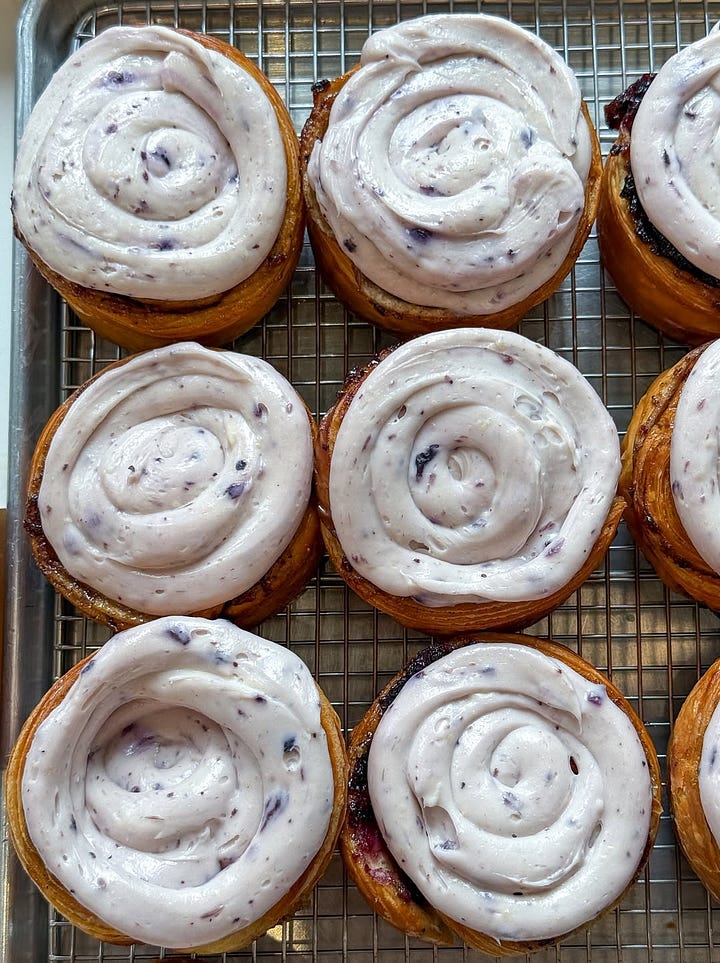
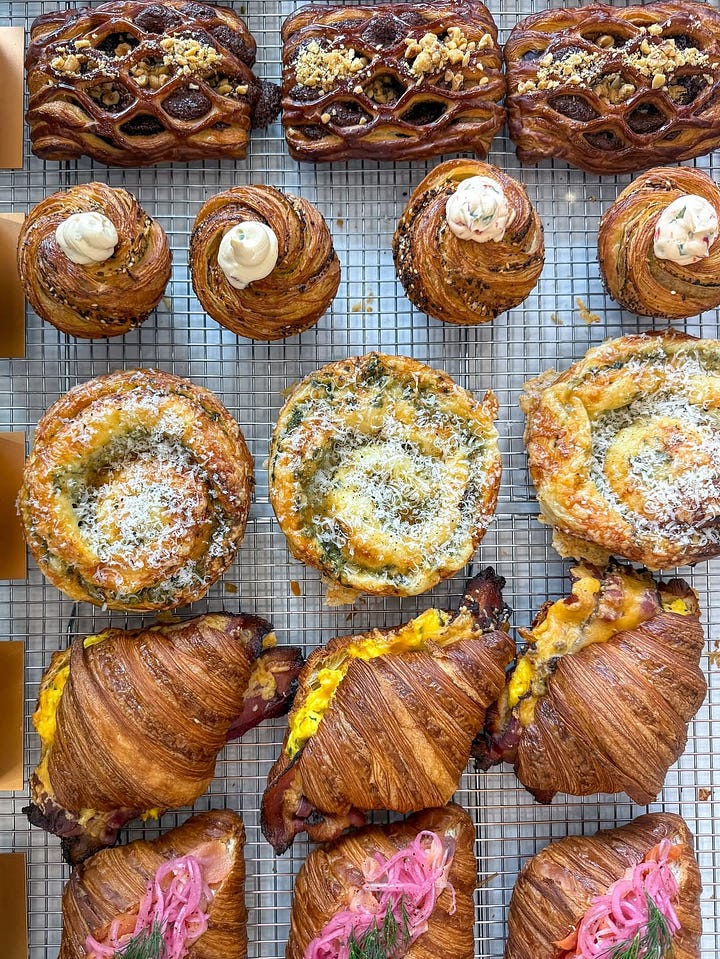
Smart. Marketing.
“Seed oils are one of the most unhealthy ingredients that we have in foods,” posted now-Secretary of Health and Human Services RFK Jr. in October 2024. “We need to Make Frying Oil Tallow Again.” Kennedy’s ascendance to office turbo-charged the anti-seed oil movement; he’s threatened to ban seed oils and called for fast food restaurants to begin using beef tallow again to fry their food (which some have). Also, Casey Means, RFK Jr.’s new pick for Surgeon General, has been publicly outspoken about seed oils.
And so the wariness around seed oils comes with a host of other beliefs common under the general umbrella of the MAHA movement. RFK Jr. has been outspokenly critical of vaccination, most recently saying there are “problems” with the measles vaccine as unvaccinated children die of the disease for the first time in decades. He has supported debunked theories that childhood vaccines cause autism, and has promoted the falsehood that AIDS is caused by drug use and “compulsive homosexual behavior.” Meanwhile, Means also frequently criticizes vaccines in her wellness newsletter, calling birth control a “disrespect of life,” and believes gluten causes mental illness. Pause.
Should it matter what other people believe if you’ve found that cooking a certain way makes you feel better, or would you rather spend your money on local, organic olive oil than Crisco and Mazola? Ideally, no. Most restaurateurs profiled here were adamant that their support of the anti-seed oil movement had nothing to do with politics; it was simply an extension of their beliefs regarding its health benefits. In the FAQ section of James Provisions’ website, Williamson writes a fact followed by an opinion: “Seed oils are highly processed, chemically treated, bleached, and deodorized. They don’t belong on your plate or in your body.”
But it’s not easy to separate one choice from the political movement that advocates it, especially as the political discourse fuels growing diner interest.
Graham Honig, co-founder of Talo Organic Grill in Venice, California, says about 90 percent of his customers come specifically because they advertise using beef tallow instead of seed oil. The restaurant also advertises other “Talo difference(s)” on its website, like “no cooking in plastic or non-stick pans,” “no gums,” and “no plastic cutting boards,” but it’s the seed oils point that makes up much of its branding. The key is to preach the health benefits of going seed oil free while being apolitical. See: Trump Burger for how not to market your restaurant.
Restaurant owners increasingly report customers coming to them precisely because they don’t use seed oils. The demand is there. The cultural movement is humming. Unlike paleo, keto, carnivore, and other fads, going seed-oil free is a movement with legs and doesn’t preach weight loss or dramatic overnight transformations.
I sense myself veering into a defense of seed oils as I watch the larger MAHA movement gain popularity, which feels like defending the Coca-Cola Company, or fossil fuels. The naming and shaming of seed oils is an attempt to correct a very real problem in American foodways: so much of our diet consists of ultra-processed food made by corporations prioritizing profit over quality.
I eat a mostly seed-oil-free diet, but I do not run away when I see it in a dip or snack. Life is too short not to enjoy simple pleasures like eating a “Selena Gomez Oreo” (yes, it was an impulse buy, the first time I had a single Oreo in decades), when these foods make up 1/20th of my total calorie expenditure.
Right next to the unopened reduced-priced Franken-food icing? Losing street cred as we speak.
Yet most U.S. residents’ omega-6 intake is due to an increased reliance on fast food and pre-packaged food like bread, frozen meals, and sweetened breakfast cereal, which use hydrogenated seed oils to remain shelf-stable. So, of course, there’s a draw to restaurants that advertise organic, nutrient-rich ingredients and reject things like mass-produced canola oil.
Indeed, one of the key components of the MAHA movement is the idea that health is an individual responsibility. It’s what’s behind RFK Jr. saying that “only very sick kids should die from measles” while questioning the proven efficacy of the measles vaccine, or TV personality and current administrator of the Centers for Medicare and Medicaid Services Dr. Oz saying on Fox News that “it is your patriotic duty to be as healthy as you can.”
Ultimately, it’s nobody’s business if you stock your pantry with organic avocado oil instead of corn oil, or if you choose to only frequent restaurants that don’t use seed oils. Dai Due and the other restaurants mentioned all want to be one more option in the seed oil-free community— a place where people can eat a meal made with high-quality ingredients, without the added anxiety of the health ramifications that come with it.
Now that “seed oil” as a phrase has broken containment within the general public, it’s more likely that restaurants will use the label to stand out among competitors, and diners will see it as a trendy buzzword, like “farm to table” or “artisanal,” without any other associations. After all, it is not a problem to use olive oil in your aioli, or to cook things in beef tallow. Those choices don’t solve these wider problems of access and health. But that’s never been the point of a restaurant.
It all boils down to dollars and sense.
Best Thing I Ate:
A Whole Bag of Texas Gulf Shrimp:
There is just something primal about taking down an entire bag of wild Gulf shrimp. Much like peeling pistachios, dieticians argue about why shrimp is a health food. It is the lowest calorie protein, and the shelling process burns 10 cal an hour. WOW! You just burned off two Teddy Grahams. I need a life outside of work. It’s said but true… where you spend your most time will be the where your subconscious spends the most time in.
Best Thing I Drank:
Donna’s Pickle Beer:
Look I get it dog. You wanna be as ripped as me at Encore Beach Club. You wanna be presentable in Cabo. But you like flavor? Just get this.
 Tiktok failed to load.
Tiktok failed to load.Enable 3rd party cookies or use another browser
Pickles are sustenance.
Skip the dark liquors, skip the heavy reds. It‘s 110 outside. Let’s get it.
Playlist of the Week:
Send-Off:


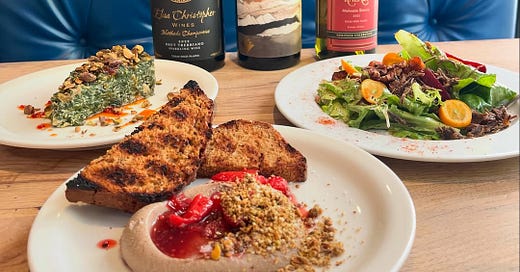






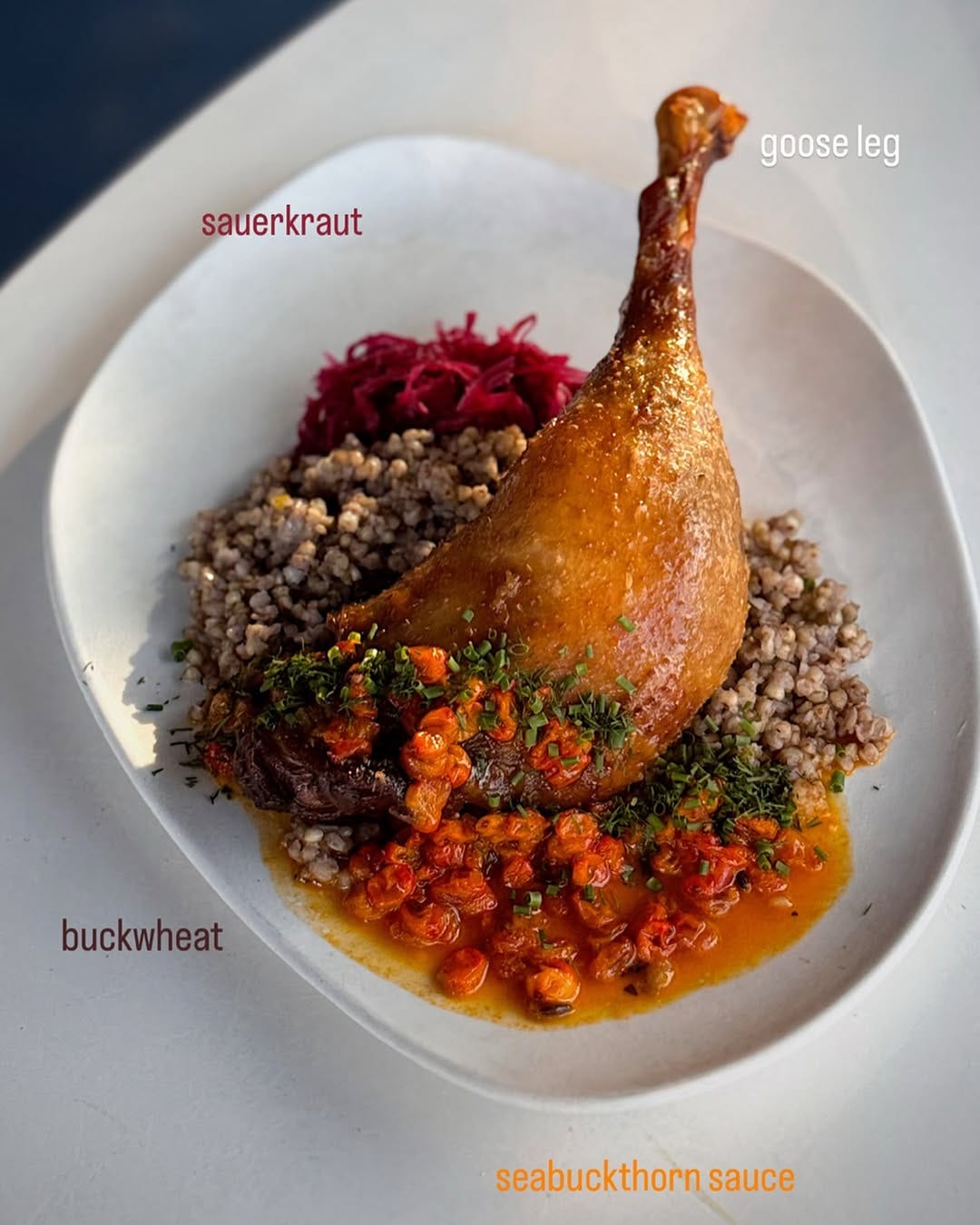

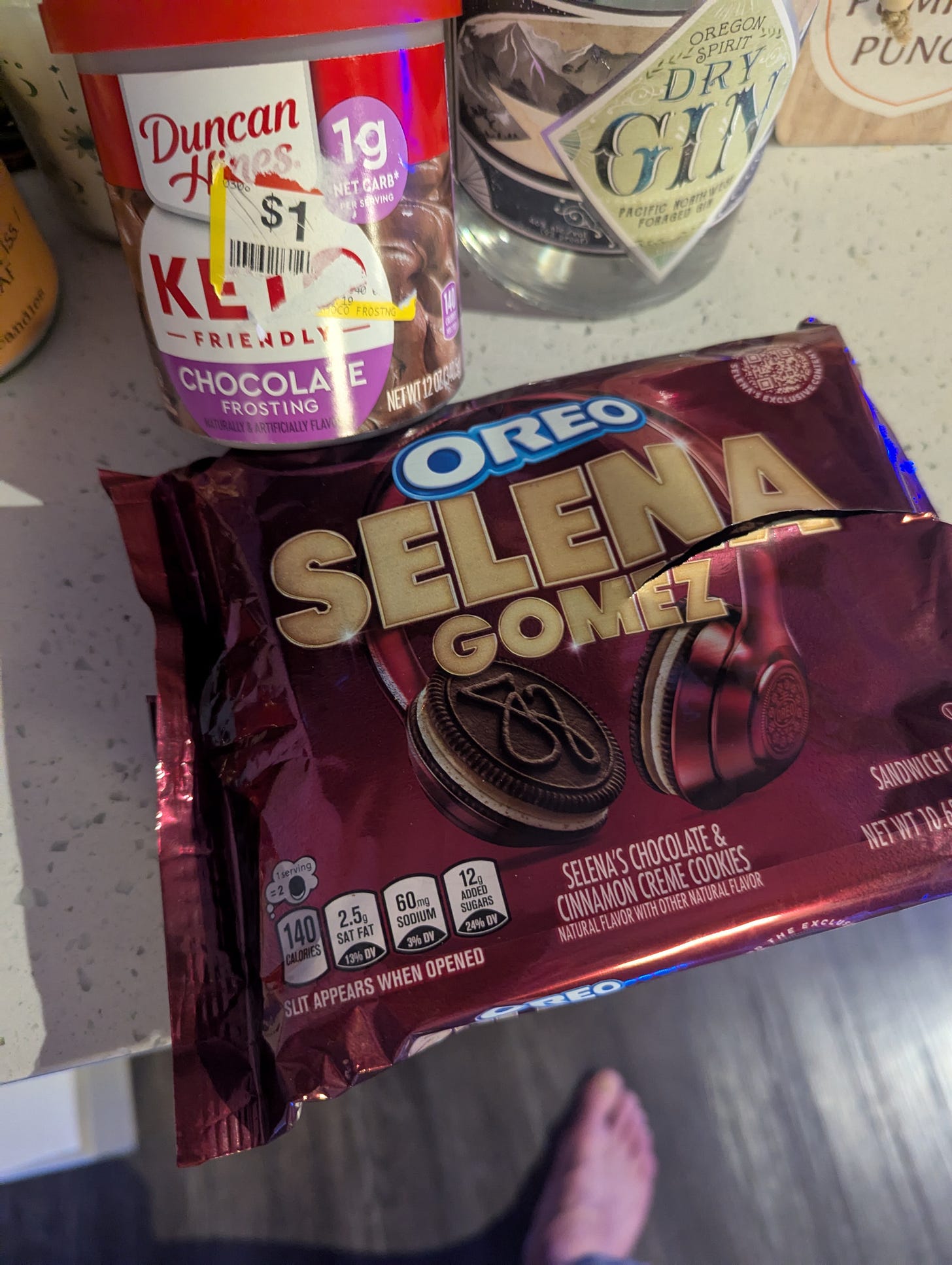

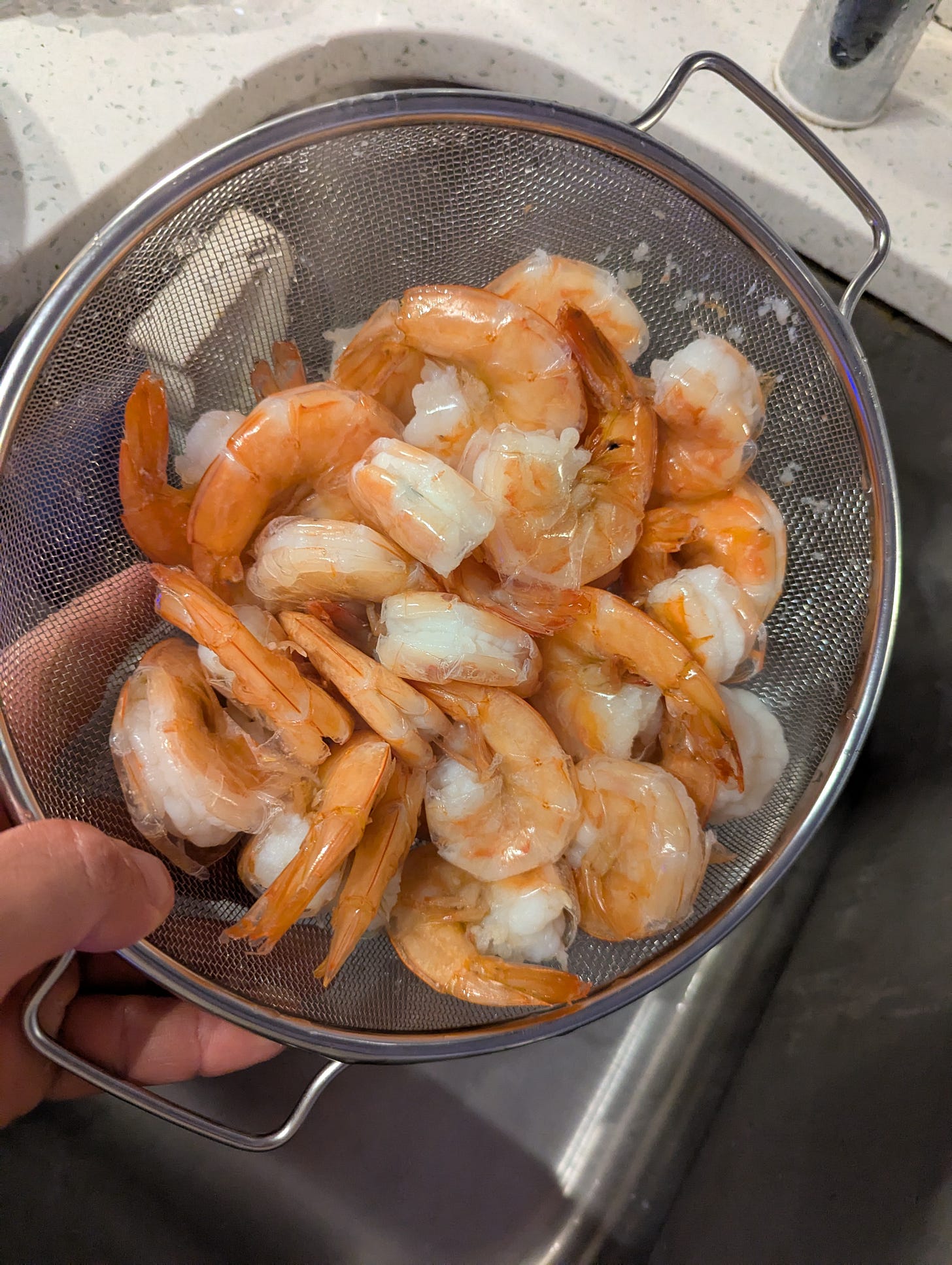
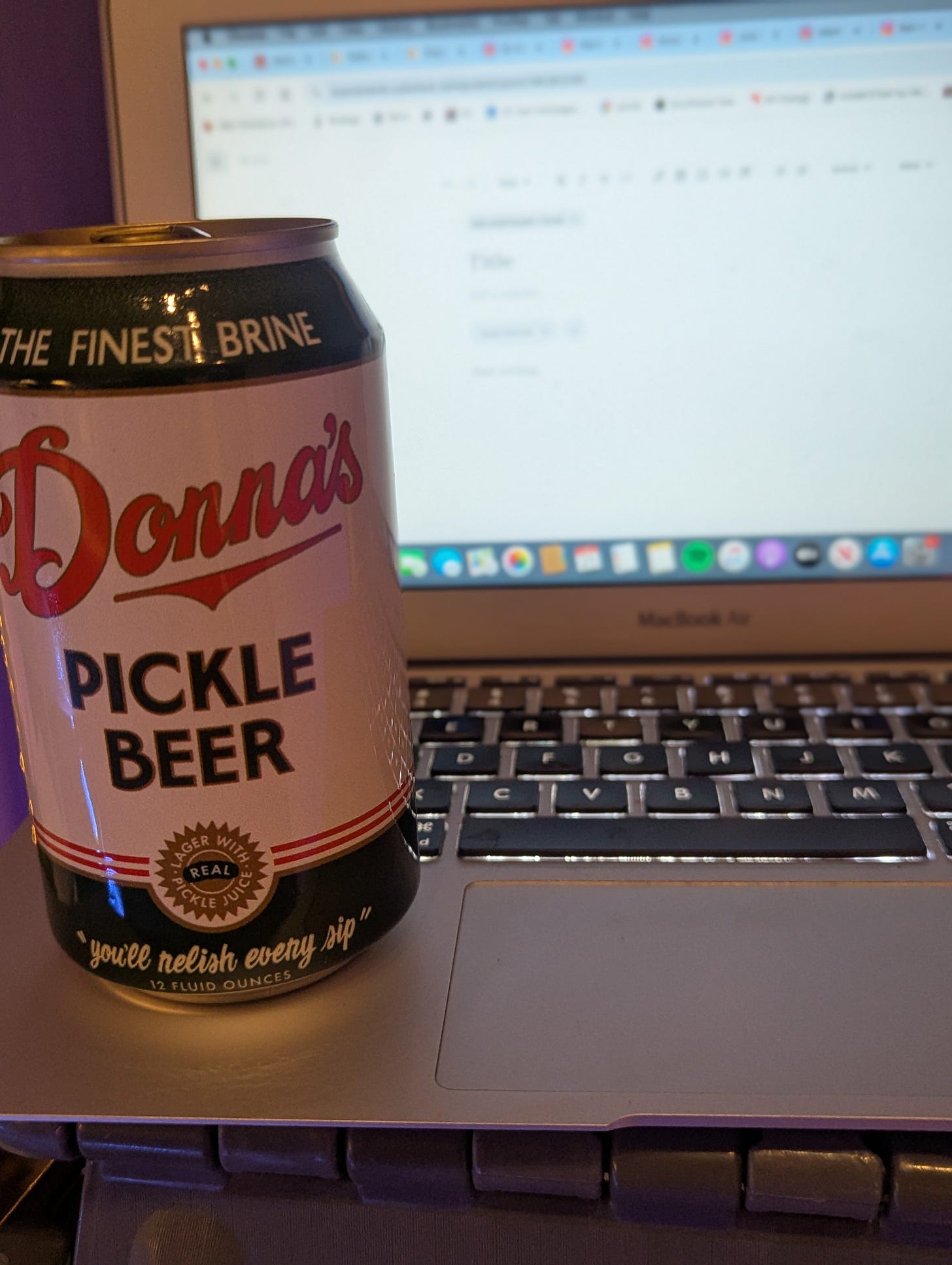


Great article 👍